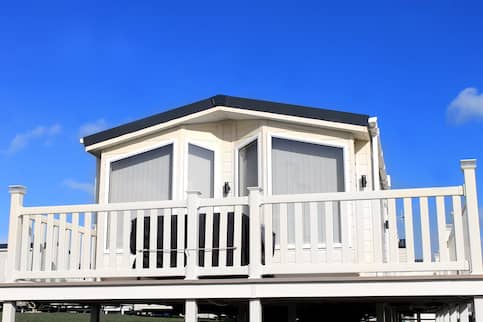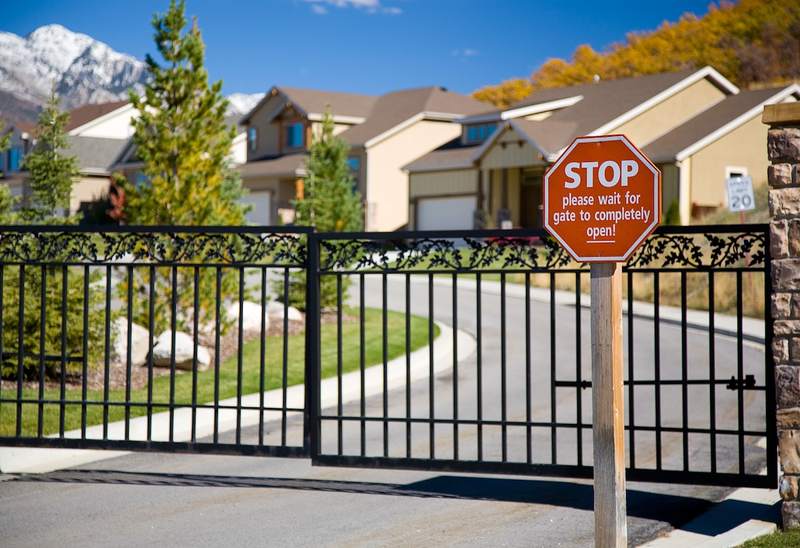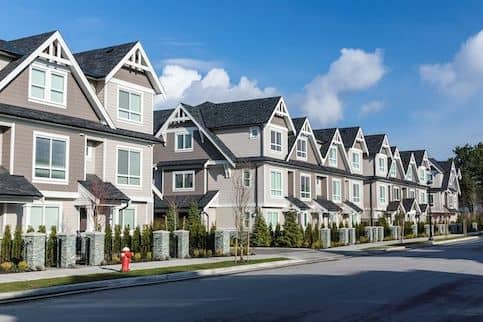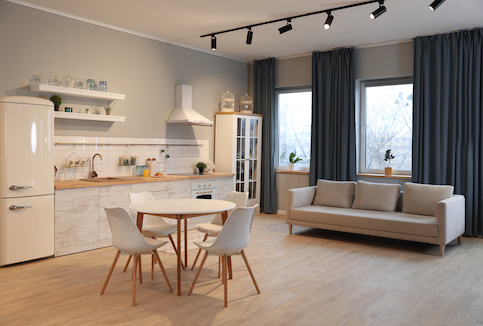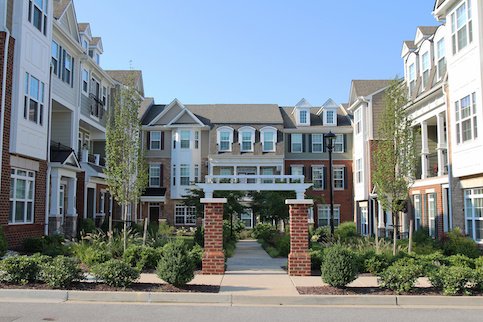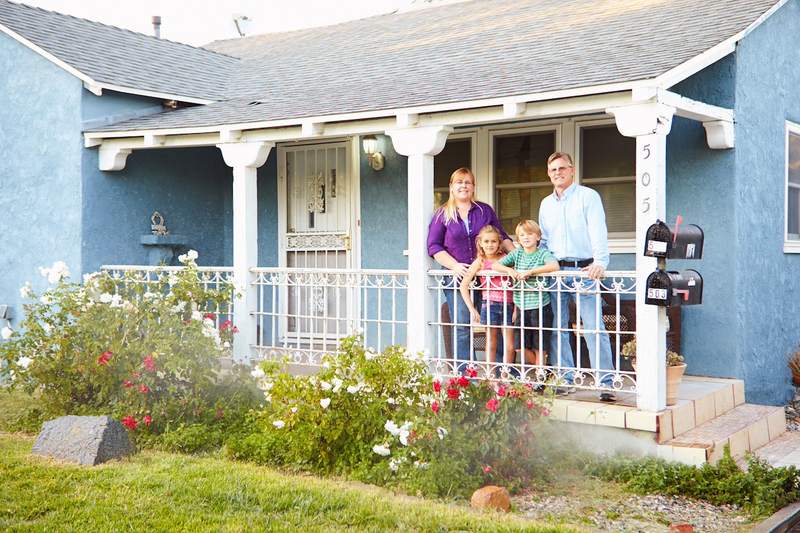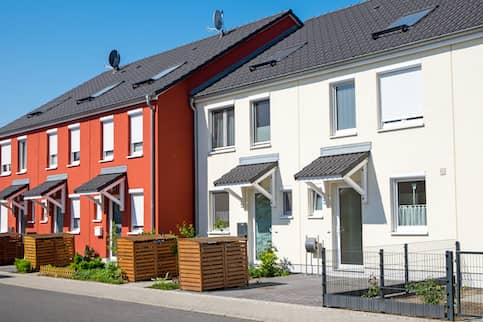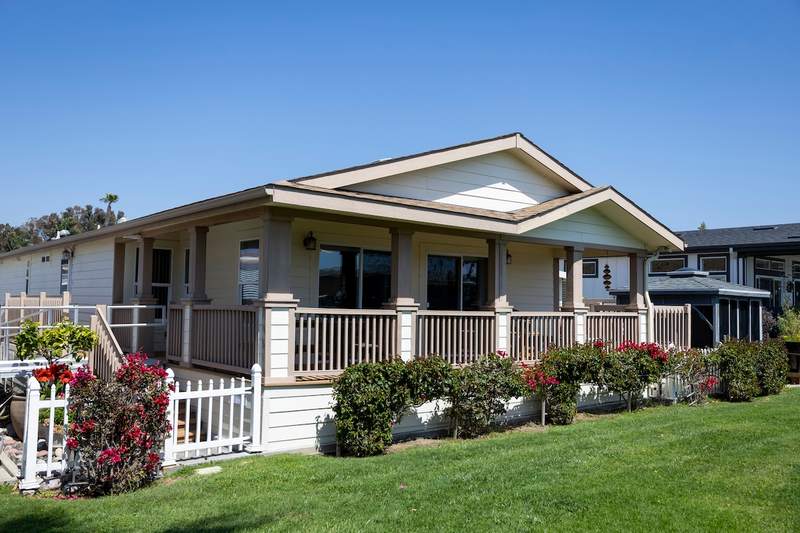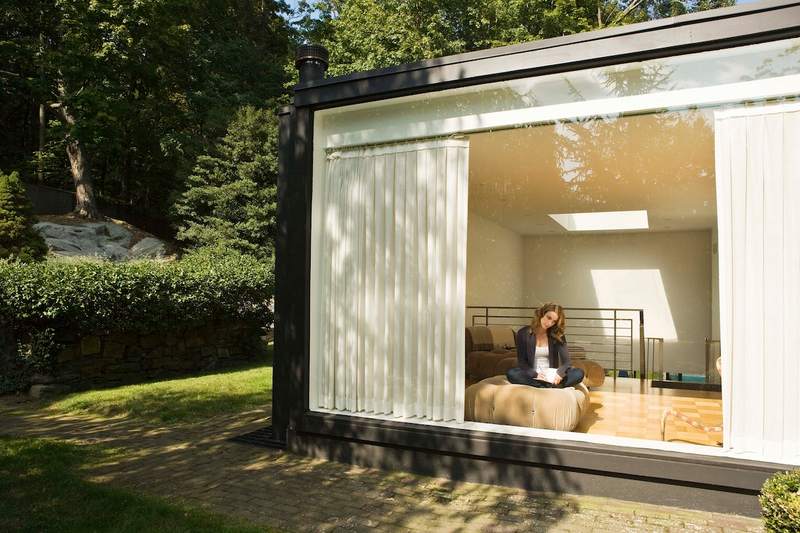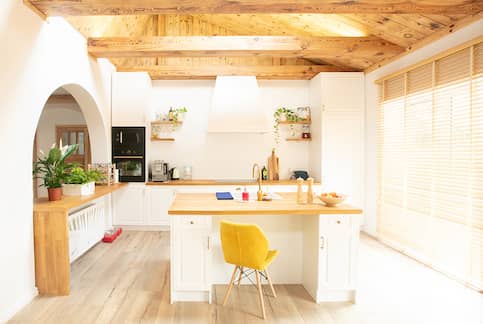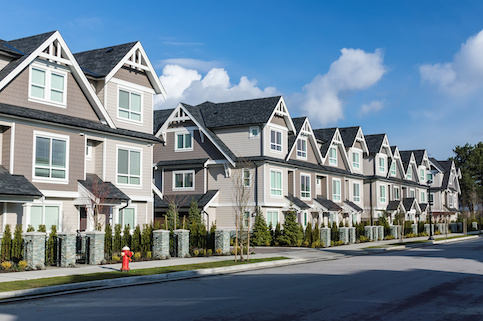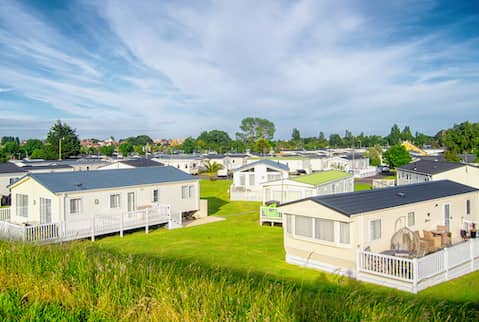Both modular and manufactured houses are prefabricated homes, meaning they’re either partially or fully constructed in an off-site factory. While they share many similarities, they also have some key differences every home buyer should understand.
In this article, we’ll cover how modular homes differ from manufactured ones, the pros and cons of each and some considerations you should make think about buying either option.
What’s The Difference Between A Modular Home Vs. A Manufactured Home?
From a legal standpoint, the primary difference between modular and manufactured homes is that modular homes are held to the same local, state and regional building codes required for on-site homes, while manufactured homes are held to a federal code set by the Department of Housing and Urban Development (HUD).
Admittedly, this legal distinction doesn’t tell us much in and of itself. So, what are the discernible differences between modular and manufactured homes? Let’s have a look.
What Is A Modular Home?
A modular home is a house that’s partially constructed in a factory and shipped to the homeowner’s lot, where it’s pieced together, put on a foundation and then completed.
Like on-site stick-built homes, modular homes are placed on a permanent foundation and often have full basements or crawl spaces. The construction of a modular home must comply with local building codes and standards in the area where the home will be placed.
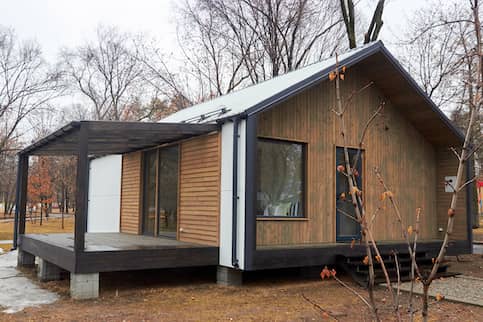
Modular Home Pros
While the construction process differs quite a bit from that of traditional homes, you’d be hard-pressed to identify a modular home just by looking at it. They can come in all sorts of floor plans and designs, from a sprawling ranch or Cape Cod to a two-story colonial.
Like traditional, site-built homes, modular homes have values that tend to go up or down right along with the rest of the housing market. In other words, you can build equity in your modular home just like you would with an on-site house.
Also, most banks and lenders offer financing on modular homes, meaning buyers will typically have a good range of mortgage options when it comes time to make a purchase.
Modular Home Cons
Even though modular homes come with several benefits, including affordability and easier financing, they do have some disadvantages. For instance, some HOA communities may prohibit the construction of any type of prefab home, including modular houses.
There are also numerous manufacturers with varying levels of service and amenities. You might have to spend a lot of time researching different modular home companies to find one that offers the services and designs you’re looking for.
What Is A Manufactured Home?
Manufactured homes, sometimes referred to as mobile homes or trailers, are houses completely constructed in a factory and built on a fixed, steel chassis (rather than a permanent foundation). These homes are also usually built with wheels, which are detached after towing the home to the location, which is either privately owned or leased to the homeowner.
Construction on a manufactured home must comply with building codes set up by HUD. One of the primary ways to identify a manufactured home is by its HUD tag.
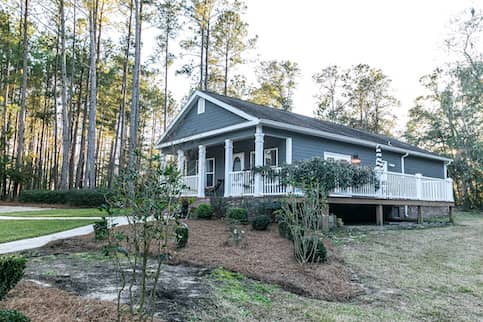
Manufactured Home Pros
Newer manufactured homes don’t always look like the double-wide trailer you may be picturing. While they might not be as customizable as site-built or modular homes, manufactured homes can be built with a variety of architectural styles, floor plans and add-ons, such as decks and porches.
Another misconception about manufactured homes is that they are unsafe or poorly built. With the passing of the National Manufactured Housing Construction and Safety Standards Act of 1974, HUD began requiring stringent construction and safety standards for all HUD-certified manufactured homes. It’s important to note that manufactured homes built before June 15, 1976 – when the law went into effect – aren’t considered compliant with HUD code.
Modern day manufactured homes are also energy-efficient, durable and affordable. Since these structures are built in a controlled environment, home builders can use more cost-effective constructive methods and better ensure uniform quality as the structure is built.
Manufactured Home Cons
Unfortunately, like any type of home, manufactured houses come with some drawbacks.
One disadvantage of buying a manufactured home is that it can be more complicated for home buyers to get a mortgage. Some dealers and local lenders may offer financing, but only a few lenders offer mortgages on this type of housing.
While Fannie Mae and Freddie Mac do offer conventional loans for manufactured housing, government-backed loans are a more common choice because of different underwriting standards. FHA loans for manufactured homes require a foundation inspection according to the standards set by the Permanent Foundations Guide for Manufactured Housing. If you’ve had a prior inspection, that can be used to qualify.
Find A Mortgage Today and Lock In Your Rate!
Get matched with a lender that will work for your financial situation.
See What You Qualify For
Buy A Home
Discover mortgage options that fit your unique financial needs.

Refinance
Refinance your mortgage to have more money for what matters.
Tap Into Equity
Use your home’s equity and unlock cash to achieve your goals.
Additional Differences Between Modular And Manufactured Homes
The differences between modular and manufactured homes have serious implications when it comes to affordability, financing, long-term value and a variety of other factors. Here’s a chart that breaks down some of the important differences between modular and manufactured homes:
| Modular Homes | Manufactured Homes |
|---|---|---|
Construction method | Multiple factory-made pieces assembled at home site | Built-in on top of a chassis, can be single or multi-width |
Mobility | No | Can be transferred to property then permanently affixed |
Financing options | Standard | Limited (more options may be available if the home is permanently affixed to the land) |
Code requirements | Local, state and regional codes | Federal HUD code |
Relative home cost | Higher | Lower |
Some home buyers opt for a manufactured home over a modular home based on affordability alone. It’s true that manufactured homes tend to be less expensive overall, but the broader range of mortgage options for a modular home might offer qualified borrowers the ability to get into a modular home more quickly and easily, with more lending options and more simplified loan processing.
The Bottom Line: Both Manufactured And Modular Homes Have Pros And Cons
While these types of homes may be similar in construction, they have different implications for home buyers, like you. Modular homes may be difficult to differentiate from other homes and they must comply with local building codes and standards, while manufactured homes are built on a fixed chassis and must comply with building codes established by HUD. With other considerations like customization and mortgage options, knowing the difference between modular and manufactured homes will help guide you to make the right decision.
Find A Mortgage Today and Lock In Your Rate!
Get matched with a lender that will work for your financial situation.

Victoria Araj
Victoria Araj is a Staff Writer for Rocket Companies who has held roles in mortgage banking, public relations and more in her 15-plus years of experience. She has a bachelor’s degree in journalism with an emphasis in political science from Michigan State University, and a master’s degree in public administration from the University of Michigan.
